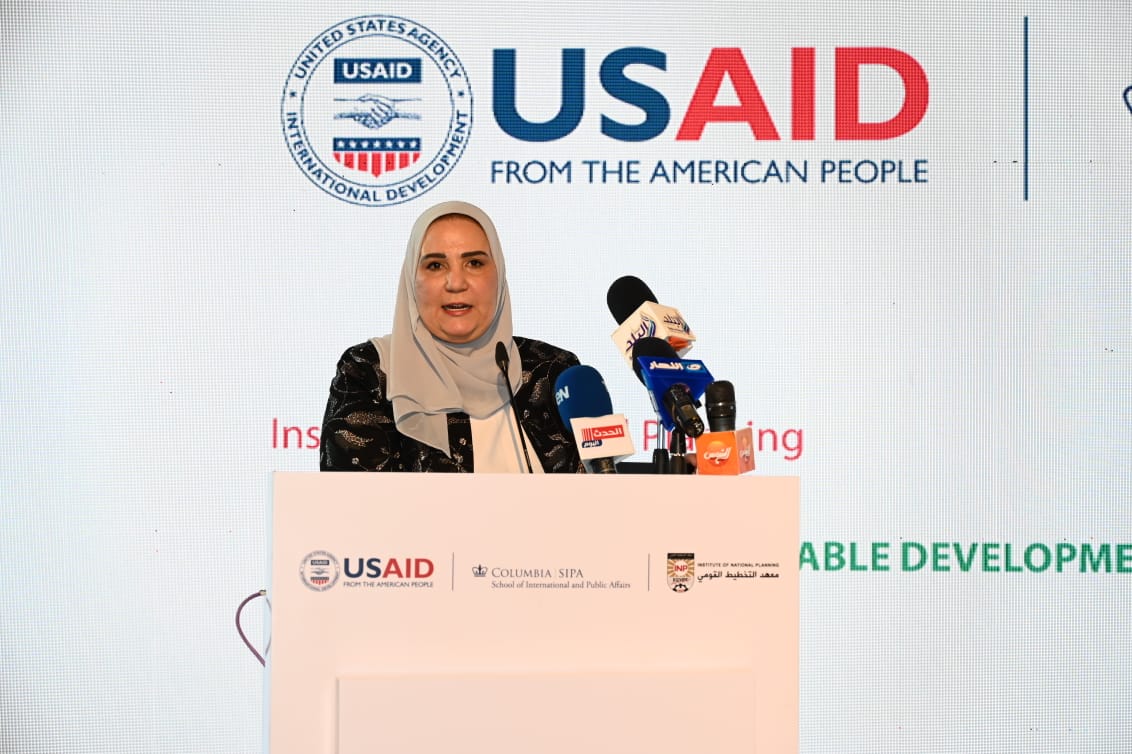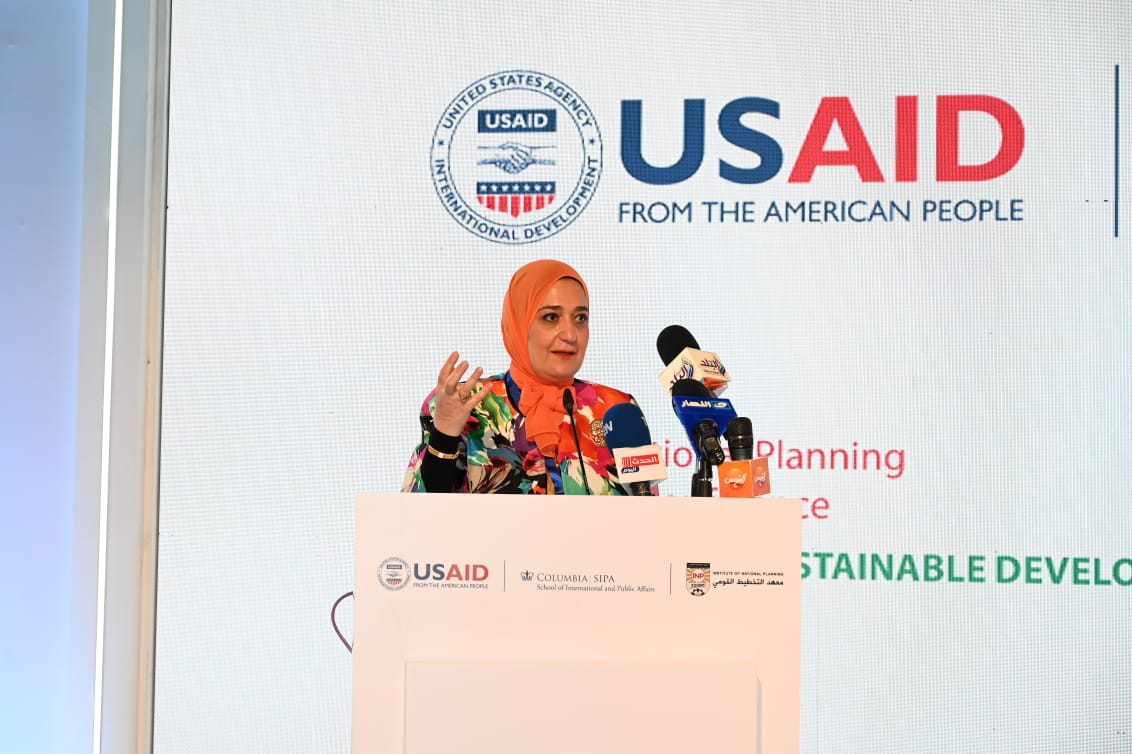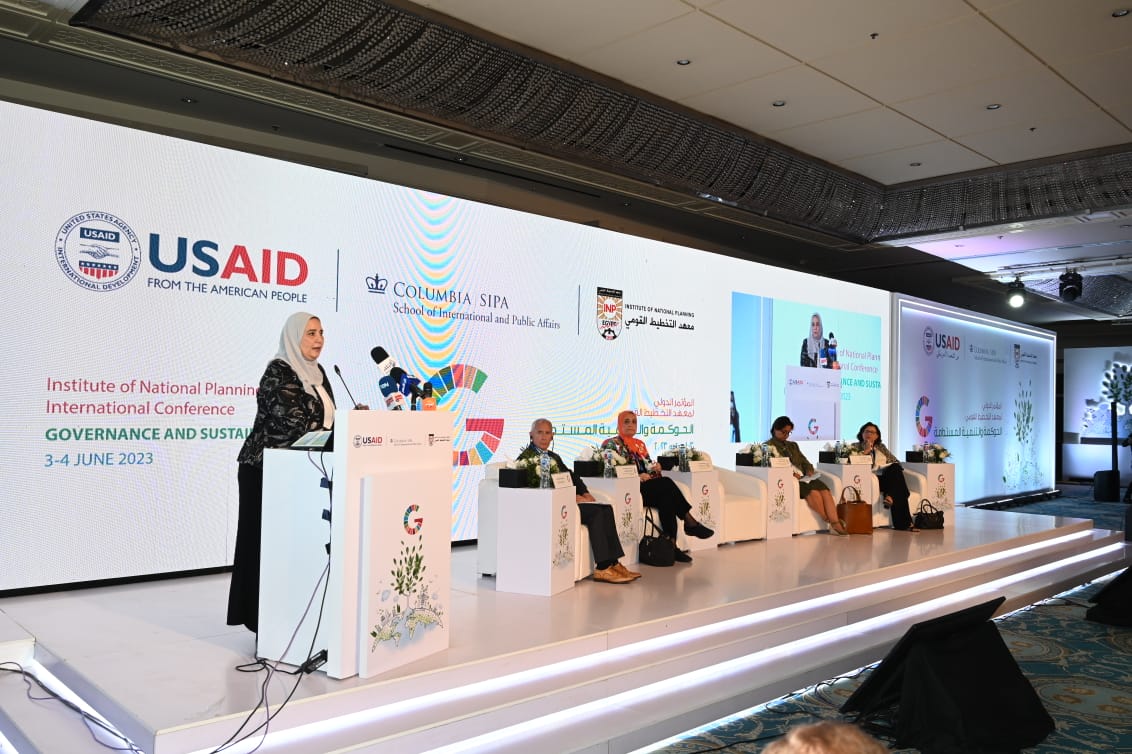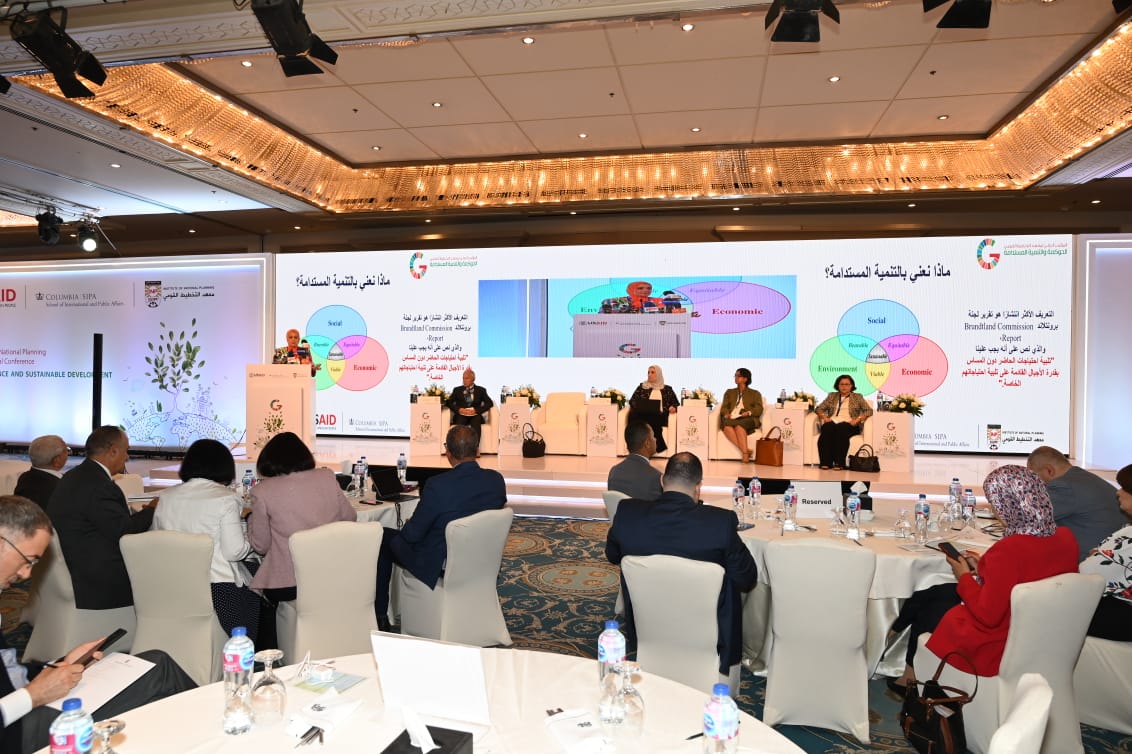follow ups
The International Conference of the Institute of National Planning under the title “Governance and Sustainable Development”, which is organized by the Institute of National Planning in cooperation with the Economic Governance Project funded by the United States Agency for International Development (USAID) and the School of International and Public Affairs (SIPA) at Columbia University, continued its activities for the second day, which began with a session A discussion on “The Role of Governance in Supporting the Social Dimension of Sustainable Development”.

The session was chaired by Nevine El-Kabbaj, Egyptian Minister of Social Solidarity, who began her speech by thanking the conference management, headed by Dr. Ashraf Al-Araby, for inviting her to attend. She said: The issue of life is an issue of social justice, and Egyptian President Abdel Fattah Al-Sisi has given special priority to social justice and established the rules of fairness, which is what Confirmed by the 2014 constitution.
The minister also reviewed some special points about the enabling part of social protection, not just cash support, and highlighting the positive aspect of social protection in addition to providing opportunities to cover the minimum social insurance.

Then came the speech of the main speaker of the session, Prof. Dr. Sherine El-Shawarby, Professor at the Faculty of Economics and Political Science, Cairo University, who said: Governance is full respect for human rights, the rule of law, effective participation, multilateral partnerships, political pluralism, transparent and accountable processes and institutions, and it also allows a sector A year that is characterized by efficiency, effectiveness, and legitimacy. It also provides access to knowledge, information, education, and political empowerment of individuals. It achieves fairness, sustainability, and supports attitudes and values that promote responsibility, solidarity, and tolerance.
Then Dr. Howaida Adly Roman, Professor of Political Science at the National Center for Social and Criminological Research, spoke about “The Effectiveness and Governance of Social Protection Programs”, where she began by defining the concept of social protection, which represents a set of policies and programs designed to reduce or prevent poverty and vulnerability throughout the human life cycle as a whole.
She added that social protection is one of the paths to achieving the goals of sustainable development, as its function is no longer only relief for the poor, but has expanded to include preventive, empowering and transformative functions.

She pointed out that the effectiveness of social protection depends on a number of factors, including the design of programs, the quality of implementation, the delivery of benefits to the beneficiaries, and the ability of these beneficiaries to express their opinion.
After that, Dr. William Emick and Dr. Stephen Cohn talked about “multi-sectoral participation and its importance in the field of telehealth,” where Dr. William said that partnership appears when an organization defines an important goal, product, service provision, or project to ensure that it is accomplished and delivered at times. It cannot do this business through partnership or enter into another sector, as the challenges facing successful partnerships across sectors are the imbalance of interests, ambiguity, confusion, conflicts, complexities and legal barriers, insufficient resources, maintaining the impact and results of the partnership, and poor quality of institutions.
After that, Dr. Hania Sholgami, Associate Professor at the Center for Social Research, The American University in Cairo, said: The partnership between the public and private sectors works according to some matrices that have a life cycle that can start well and then get worse after that, and she described governance as a state of morale It must create a sense of acceptance and justice.




